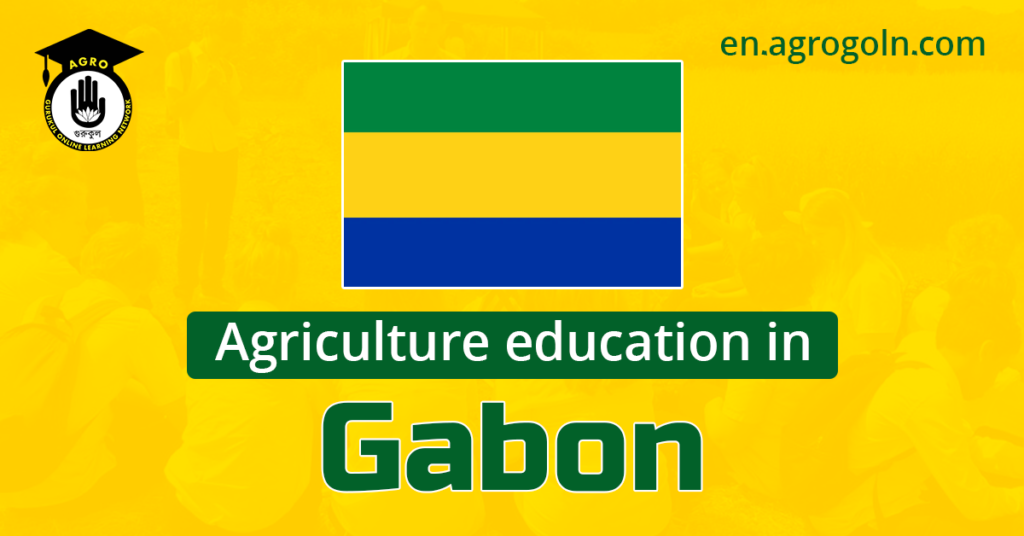Agricultural Education in Gabon. Gabon, situated on the west coast of Central Africa, is endowed with a rich diversity of natural resources. While the nation is primarily known for its oil and mineral resources, its vast tracts of rainforest and arable land present tremendous agricultural potential. However, for Gabon to unlock this potential, a significant emphasis on agricultural education is crucial. This essay aims to delve into the current state, challenges, and future prospects of agricultural education in Gabon.
Agricultural Education in Gabon
Historical Background
Historically, Gabon’s economy was largely dependent on extractive industries, with oil, manganese, and timber being major exports. Agriculture played a secondary role, with subsistence farming being the norm for many rural communities. Post-independence, while there was a push for modernization and economic diversification, agriculture was often overshadowed by the more lucrative oil industry.
However, with the fluctuating oil prices and the realization of the need for sustainable development, there has been a growing interest in agricultural development in recent years. Recognizing this, the Gabonese government and various stakeholders have emphasized the need for proper agricultural education to spearhead this development.
Current State of Agricultural Education
- Formal Education: Gabon has a limited number of institutions that offer specialized agricultural education. While general subjects related to agriculture are taught in primary and secondary schools, advanced courses and specialized training usually occur at the tertiary level. The University of Science and Technology of Masuku is one of the notable institutions offering courses in agricultural sciences.
- Training and Extension Services: Several non-governmental organizations (NGOs) and international agencies have set up training programs in Gabon. These programs primarily focus on sustainable farming practices, forest conservation, and value addition to agricultural products.
- Youth Engagement: Youth participation in agriculture has been a concern in Gabon, as in many African nations. The urban allure often draws young people away from rural areas. Agricultural education at the school level is seen as a tool to spark interest in farming among the youth, by exposing them to modern agricultural techniques and the potential profitability of the sector.
Challenges
- Lack of Infrastructure: Proper facilities, such as well-equipped laboratories, experimental farms, and modern classrooms, are essential for effective agricultural education. Many institutions in Gabon lack these facilities, which hampers practical learning.
- Curriculum Relevance: The agricultural curriculum in many institutions might not always be in sync with the actual needs of Gabon’s agro-sector. For the training to be effective, it should address the unique challenges and opportunities of farming in Gabon.
- Limited Faculty and Trainers: There’s a scarcity of trained educators and extension workers in Gabon’s agricultural sector. Often, the trainers themselves require further training to stay updated with modern farming techniques.
- Financial Constraints: Adequate funding is necessary for infrastructure development, faculty training, and curriculum development. However, limited financial resources often curtail these essential components of agricultural education.
Future Prospects and Recommendations
- Public-Private Partnerships (PPP): To address financial and infrastructural challenges, the Gabonese government can enter into partnerships with private players interested in the agricultural sector. Such partnerships can foster research, provide funds for infrastructure development, and facilitate knowledge exchange.
- Engaging International Organizations: Collaborating with international agricultural bodies and educational institutions can aid in faculty exchange programs, curriculum development, and research initiatives.
- Online Platforms and Digital Learning: Digitalization offers an opportunity to bridge the knowledge gap. Online courses, webinars, and virtual workshops can enable farmers and students in Gabon to access global agricultural knowledge and practices.
- Community Engagement: Grassroot initiatives can play a significant role in agricultural education. Engaging communities in decision-making ensures that training programs are tailored to their needs.
- Strengthening Youth Involvement: Scholarships, internship opportunities, and setting up youth-focused agricultural clubs can motivate young people to take up agriculture as a career. Furthermore, emphasizing agri-entrepreneurship can demonstrate the profitability of the sector to the youth.
- Promotion of Sustainable and Indigenous Practices: Gabon’s rich biodiversity offers a plethora of indigenous agricultural practices that are sustainable and eco-friendly. These should be integrated into the agricultural education curriculum.
In conclusion, while there are challenges in the agricultural education sector in Gabon, there is also immense potential for growth and development. A coordinated effort from the government, private sector, international organizations, and the community can revolutionize agricultural education in the country. Such an initiative will not only lead to a more self-reliant Gabon in terms of food security but will also create job opportunities, stimulate economic growth, and promote sustainable farming practices.
See more:

